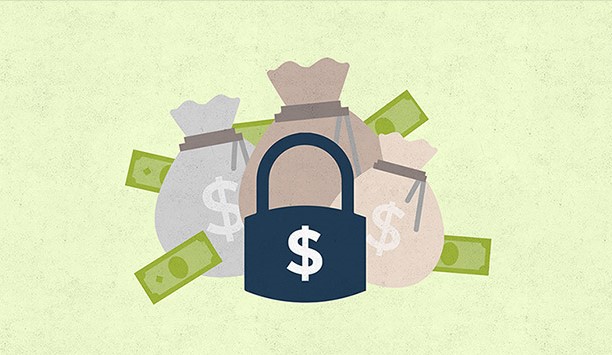 Financial success isn’t just about money. Sure, we all wouldn't mind a little more of it but there is much more to living a secure retirement than how much you have stashed in your retirement accounts. While retirement confidence has been improving, few Americans feel truly secure about their own retirement planning. In fact, according to the Employee Benefit Research Institute’s 2021 Retirement Confidence Survey, less 30 percent of Americans say they are "very confident" in their ability to retire comfortably. Concerns regarding health care, the viability of Social Security, politics, stock market crashes, financially dependent family members, aging parents – the list of retirement fears goes on and on. Rather than approach retirement with a sense a fear, consider taking steps that may help to develop a sense of security.
Financial success isn’t just about money. Sure, we all wouldn't mind a little more of it but there is much more to living a secure retirement than how much you have stashed in your retirement accounts. While retirement confidence has been improving, few Americans feel truly secure about their own retirement planning. In fact, according to the Employee Benefit Research Institute’s 2021 Retirement Confidence Survey, less 30 percent of Americans say they are "very confident" in their ability to retire comfortably. Concerns regarding health care, the viability of Social Security, politics, stock market crashes, financially dependent family members, aging parents – the list of retirement fears goes on and on. Rather than approach retirement with a sense a fear, consider taking steps that may help to develop a sense of security.
Develop a holistic plan
 Financial worry often comes from a lack of clarity and too many savers apply the "ostrich approach" to their finances. While the need for planning may seem obvious, few savers work through a complete analysis that addresses all aspects of their finances. According to previous statistics from the Certified Financial Planning Board, less than 31 percent of Americans have created a comprehensive plan to address retirement, financial emergencies, tax and estate planning. From basic online tools to "back of the envelope" calculations, these approaches are incomplete and often fail to tie all of a person's unique financial goals together.
Financial worry often comes from a lack of clarity and too many savers apply the "ostrich approach" to their finances. While the need for planning may seem obvious, few savers work through a complete analysis that addresses all aspects of their finances. According to previous statistics from the Certified Financial Planning Board, less than 31 percent of Americans have created a comprehensive plan to address retirement, financial emergencies, tax and estate planning. From basic online tools to "back of the envelope" calculations, these approaches are incomplete and often fail to tie all of a person's unique financial goals together.
Also keep in mind, planning is not a one-time event. Much like going to a physician annually for a physical, the best planning is an on-going, dynamic process that adjusts as your life and the external environment changes. And in the same way a physician is not going to write a prescription based upon blood work that is three years old, it is important to run on-going re projections and course-correct as needed.
Understand your financial limits
It is not how much you have but what you need your money to do that really matters. Too often, savers place too much strain on their finances with spending goals that are not in alignment with assets and income. Regardless of how large your nest egg might be, it is critical to understand the limitations of how far your money can go.
Are you exceeding the maximum limits on what your money can do? Are you on a sustainable path for the future? Do you have clarity on the maximum amount that you can spend each year and how long your money will last?  Knowing your limitations and making the changes that are necessary to get you on track are important steps when pursuing financial security.
Knowing your limitations and making the changes that are necessary to get you on track are important steps when pursuing financial security.
Do you know your number?
It is also critical to identify when you actually have reached the summit of having saved enough. Many times, savers continue to feel like they never have enough to retire, when in actuality they could have begun their "life after work" years ago. Determining when you no longer have to work out of financial necessity can help eliminate pressure in the years leading up to retirement and developing a game plan can help. Consider reviewing multiple scenarios for retirement that include varying ages, spending levels and lifestyles as this may provide additional clarity on when you truly have sufficient assets to feel secure. Also, consider stress-testing for unforeseen events such as a bear market decline or a long-term care need.
Prioritize your spending and life on what is most meaningful
Money is simply a tool that can enable you to focus on the things that really matter most to you. The question is – what does really matter most to you? Many pre-retirees and retirees do not spend as much time as may be necessary to uncover their true priorities in life. Do you want to be spending your time with family, friends, hobbies, travel, volunteering, etc. Interestingly, many people discover that they spend a significant amount of time and money on things that really aren't important to them. Since time may be your most valuable resource, consider assessing what is most meaningful in your life and how you want to live it to the fullest.
 Downsize your financial worries
Downsize your financial worries
Examining the numbers may end up highlighting the need to consider alternate plans. Rather than continue on a path that is unsustainable, consider making the changes needed to get on track. Do you have a plan to eliminate debt prior to retirement? Would downsizing your home or relocating to a more cost-effective state provide more money for discretionary expenses like hobbies or travel? Many times, savers feel insecure about their finances because they really need to downsize their financial stress. Eliminating debt, curbing spending and right-sizing your housing are all ways to help improve your ability to live a lifestyle that is within your means.
Unfortunately, there is only so much that we can control. Market volatility, tax law changes, life expectancy – these are all things we cannot control. However, examining your numbers, developing a comprehensive game plan and aligning your money with your life are all strategies for living a more financially secure life. Since everyone's situation is unique, consider speaking to your tax and financial advisers to determine the most appropriate approach for you.
Kurt J. Rossi, MBA, CFP®, AIF® is a CERTIFIED FINANCIAL PLANNERtm & Wealth Advisor. He can be reached for questions at 732-280-7550, kurt.rossi@Independentwm.com, www.bringyourfinancestolife.com & www.Independentwm.com. LPL Financial Member FINRA/SIPC.









